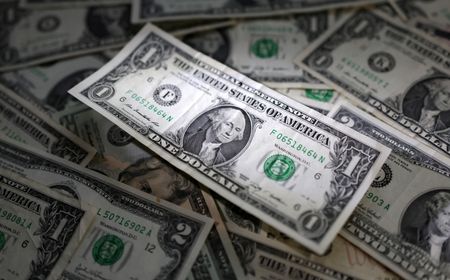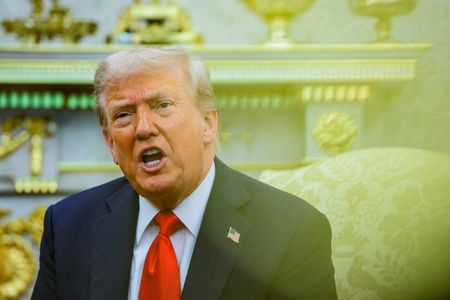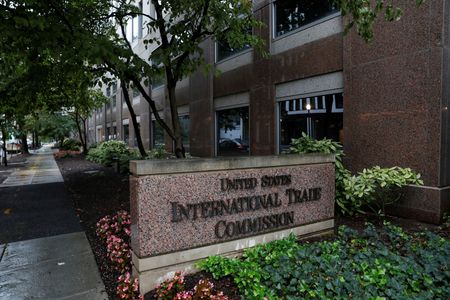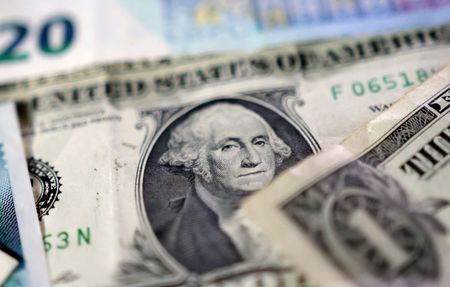FRANKFURT (Reuters) -The European Central Bank and its peers around the world should pool their reserves for U.S. dollar liquidity as Federal Reserve help cannot be guaranteed given President Donald Trump’s attacks, the head of an influential think tank said.
Adam Posen of the Peterson Institute for International Economics told an ECB conference on Wednesday it should not be taken for granted that a politicised Fed would lend dollars to foreign central banks in a crisis, as it did a few times since the 2007-2008 financial meltdown.
He recommended that the ECB and its peers outside the United States pool their reserves in dollars in order to provide emergency liquidity to domestic banks if needed. This option has been raised by European central bankers behind closed doors.
“Whether it’s acknowledged publicly or not, there has to be thinking short term about alternative pooling of assets and swap lines and dollars among major central banks and governments,” Posen said.
“You will have to team with other central banks, and it’s going to have to start being open… about having alternative swap lines,” he told the conference hosted by ECB President Christine Lagarde.
The Fed earlier this year renewed liquidity lines with a number of major central banks and has never suggested it would end these facilities.
Central bankers who privately discussed such a move in the past said the main issue was with its size.
The market for U.S. dollar bonds and loans issued outside the United States is worth around 25 trillion euros ($29 trillion), according to BIS data. All foreign central banks put together have dollar-denominated reserves of just 7 trillion euros.
This meant that these alternative swap lines would only suffice to tackle a local, rather than global, crisis, Posen said in a conversation after the event.
He expected regional arrangements such as the Chiang Mai Initiative of the Association of Southeast Asian Nations and the Arab Monetary Fund to play a greater role too.
ECB supervisors have also told banks they watch their exposure to the dollar and other foreign currencies, fearing Fed swap lines might be withdrawn while surging economic conflicts may make markets more volatile.
Posen said the ECB should be “thinking about getting certain systemic institutions out of dollar liquidity needs over the medium to long term”.
European University Institute professor Thorsten Beck told the conference that the ECB should also tackle the risk of euro zone payments relying on U.S. credit card providers Visa and Mastercard.
The ECB is developing a digital euro to provide an alternative to those cards and to dollar-denominated stablecoins.
($1 = 0.8542 euros)
(Reporting By Francesco Canepa and Balazs Koranyi; Editing by Emelia Sithole-Matarise)










